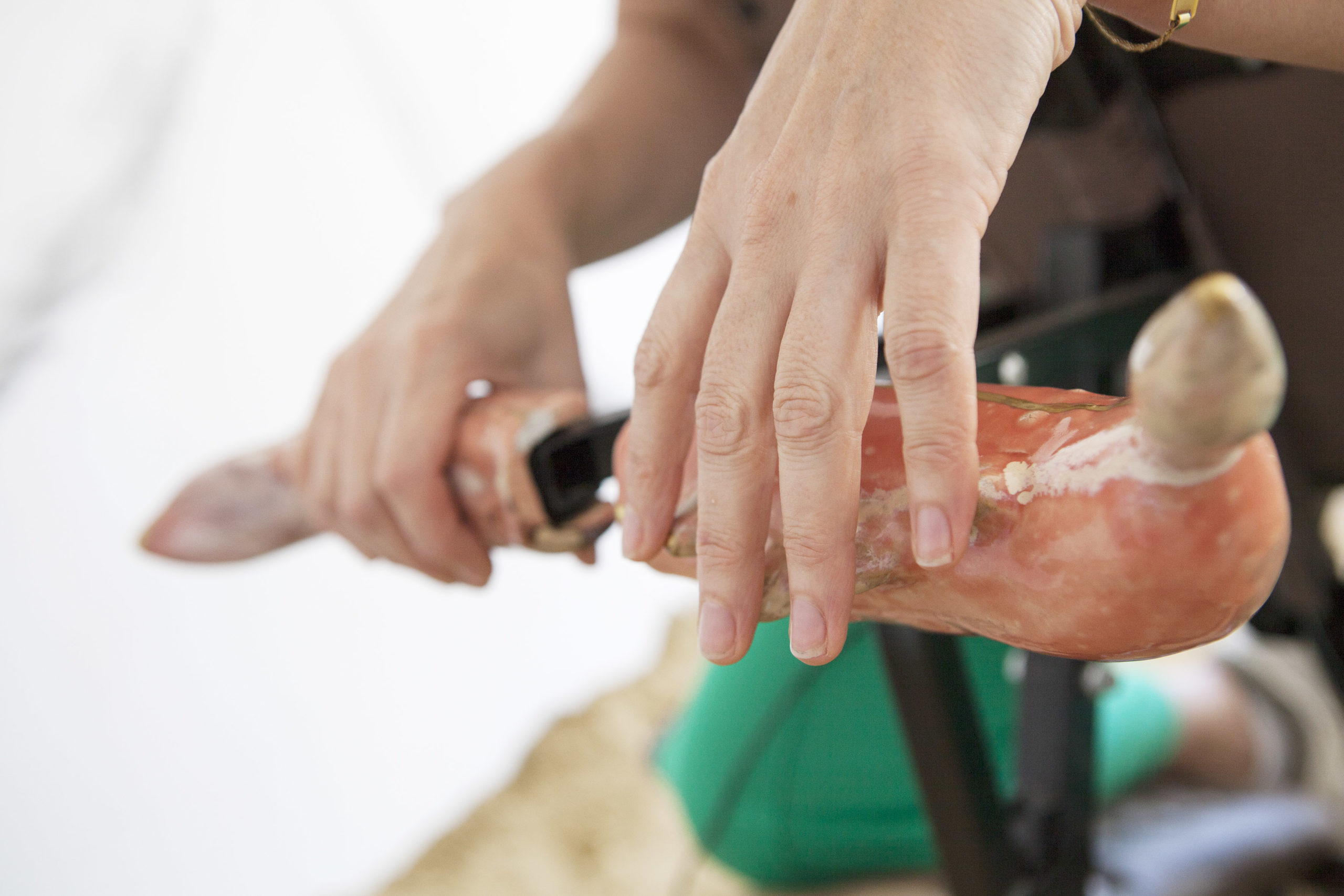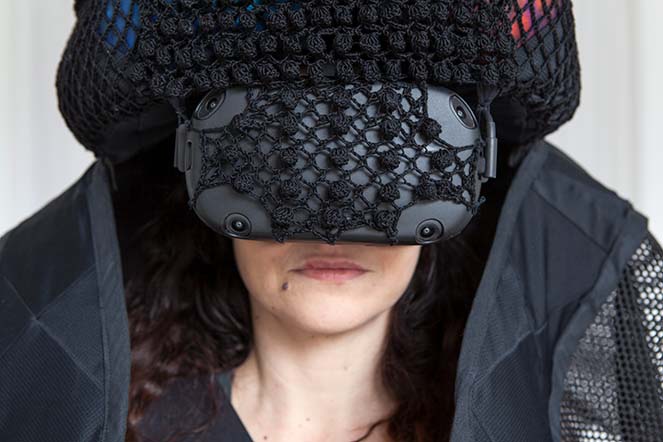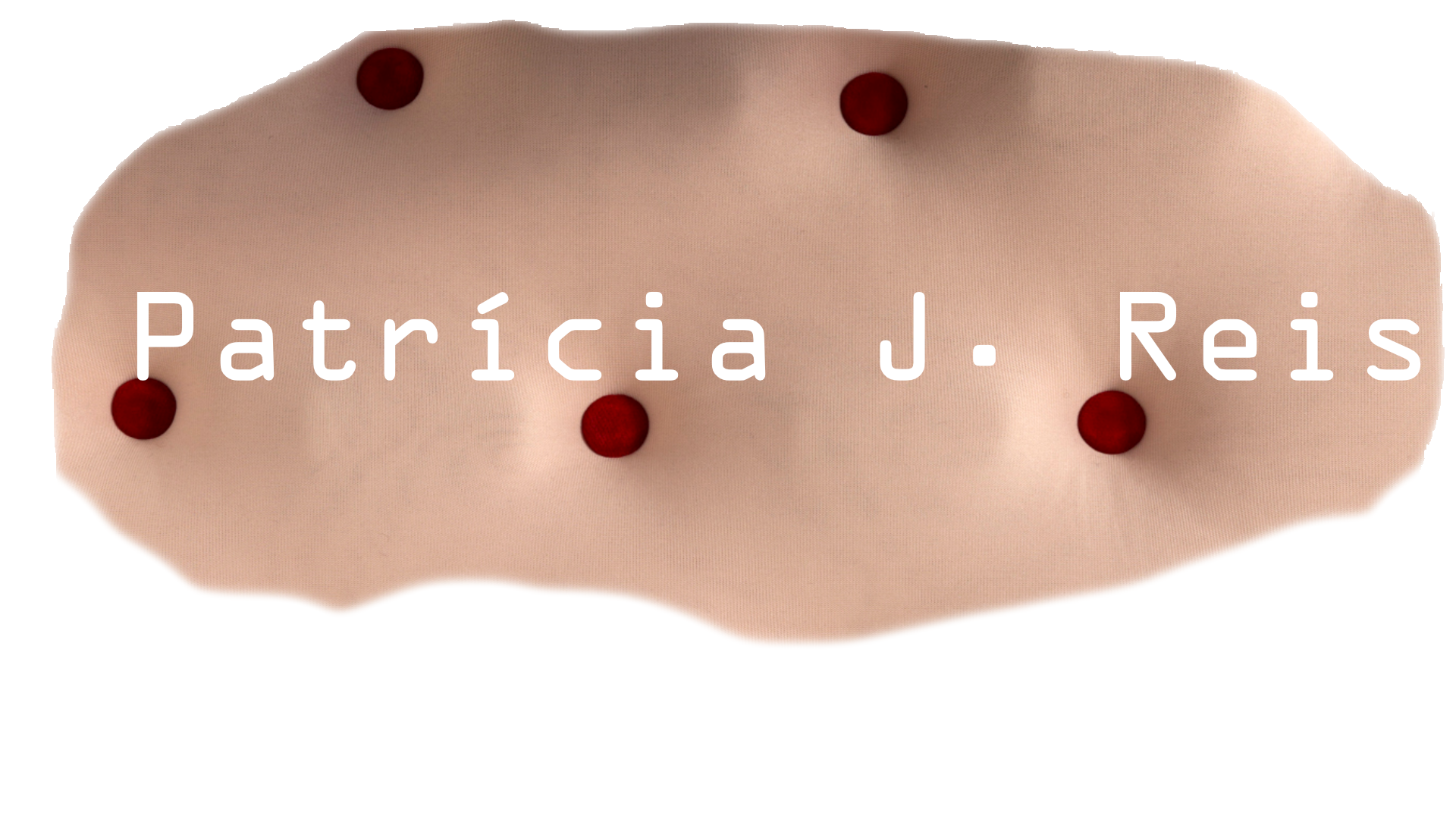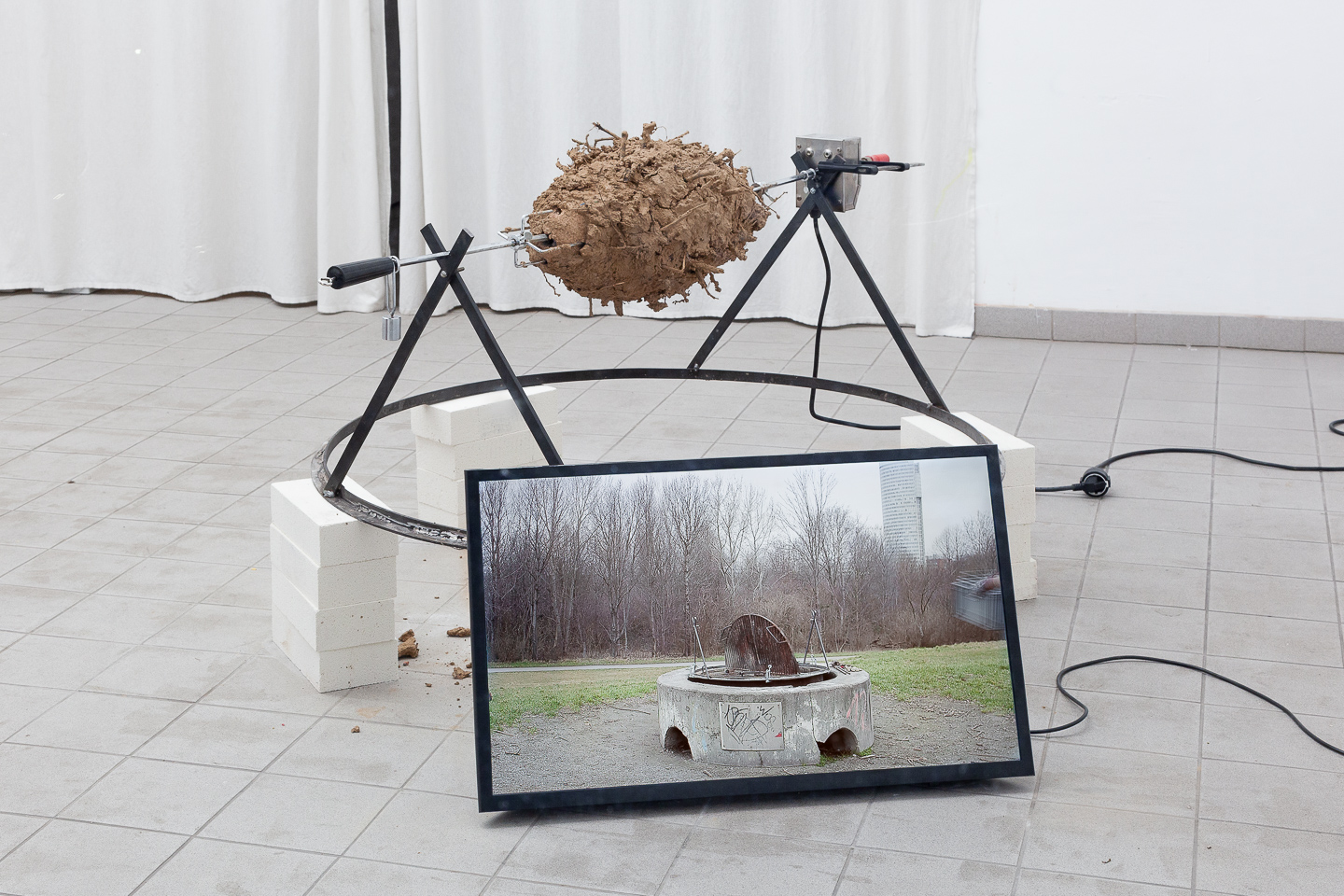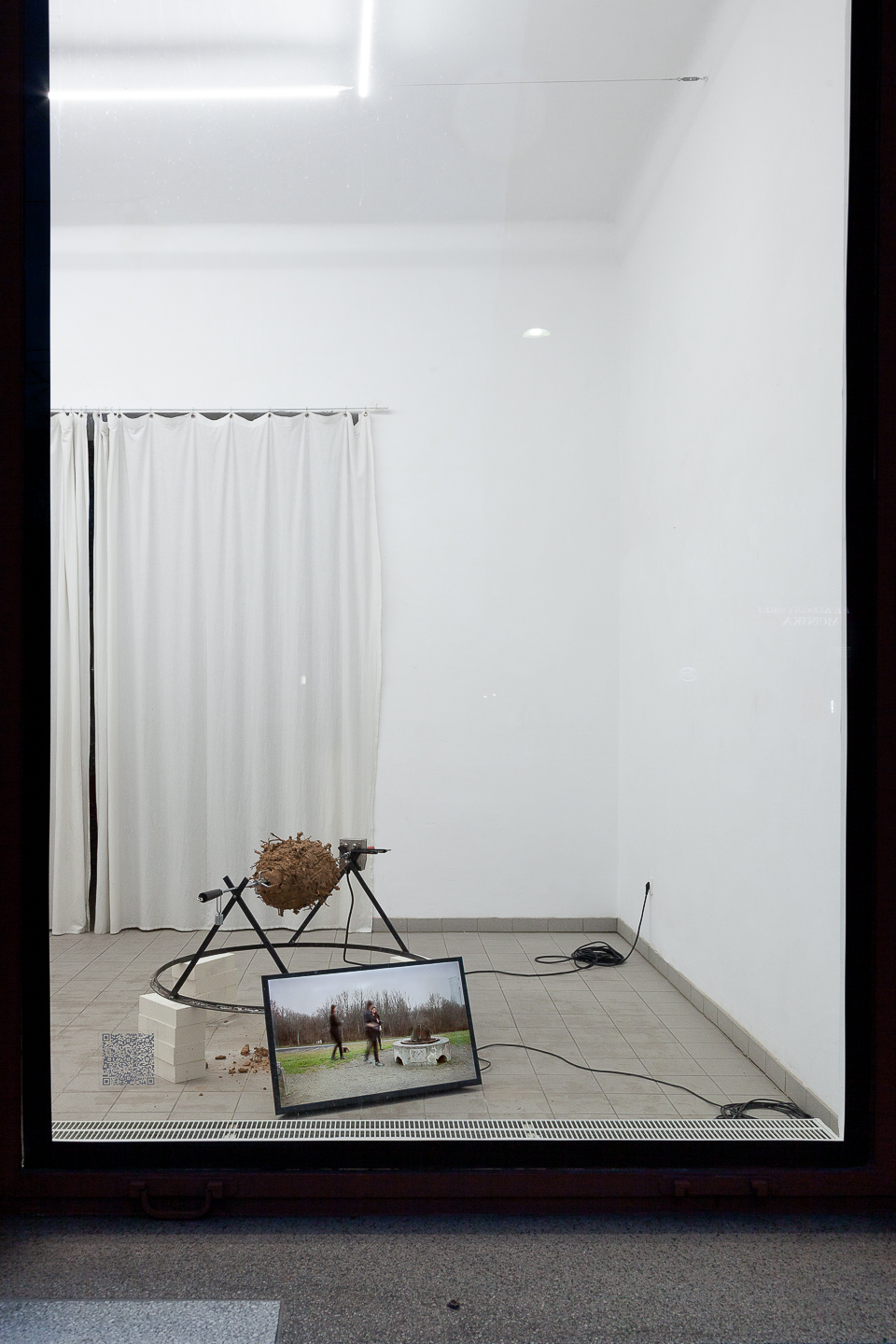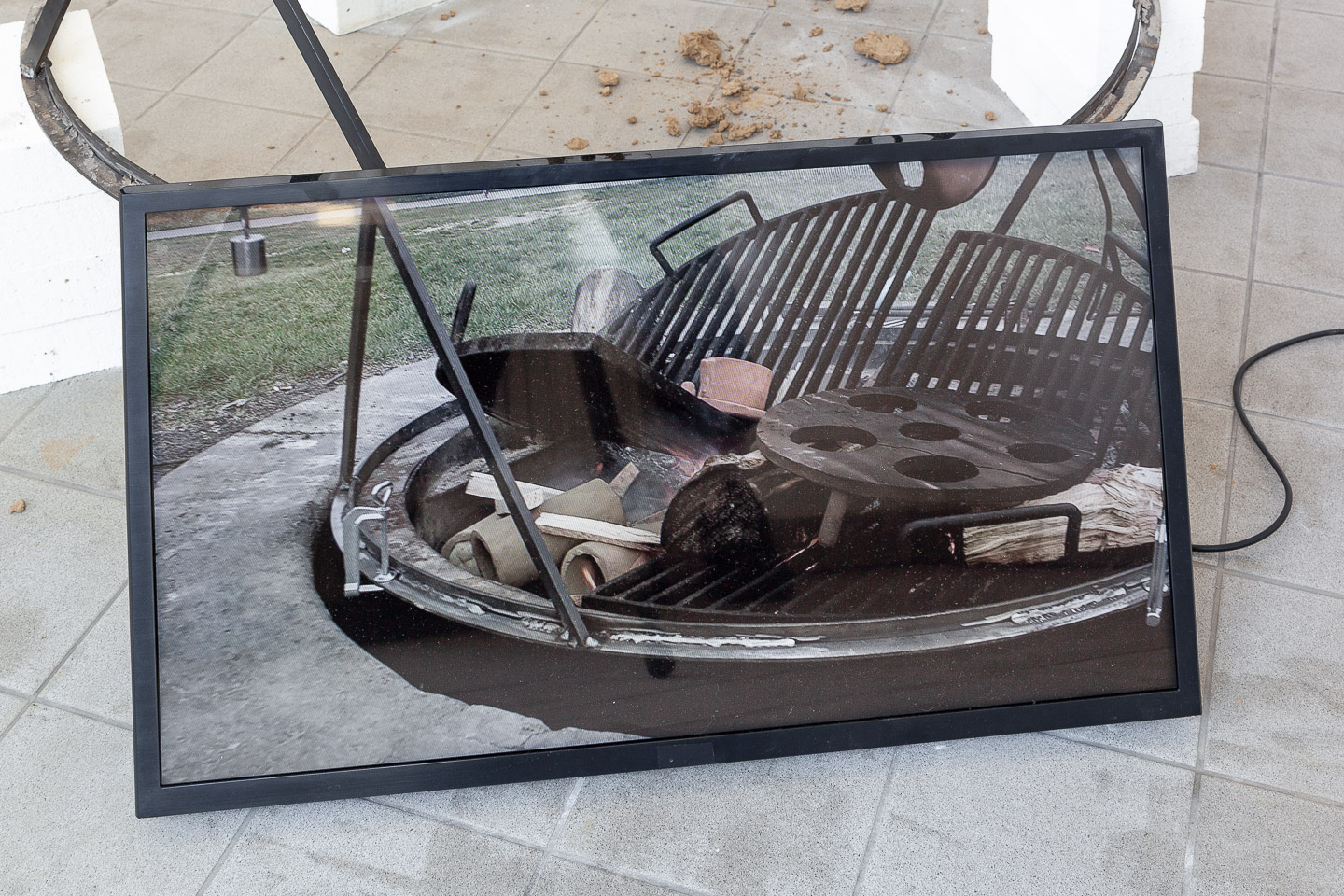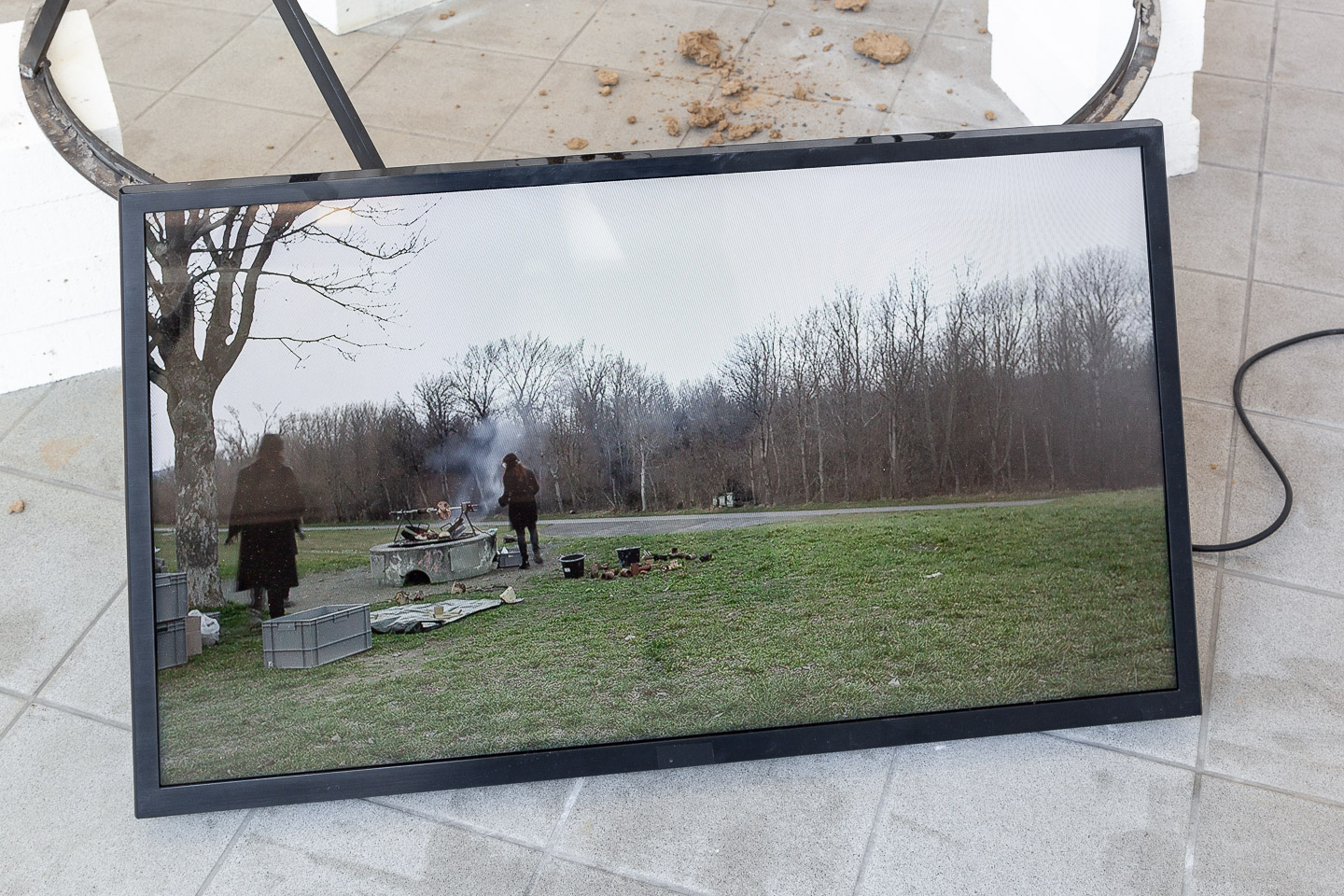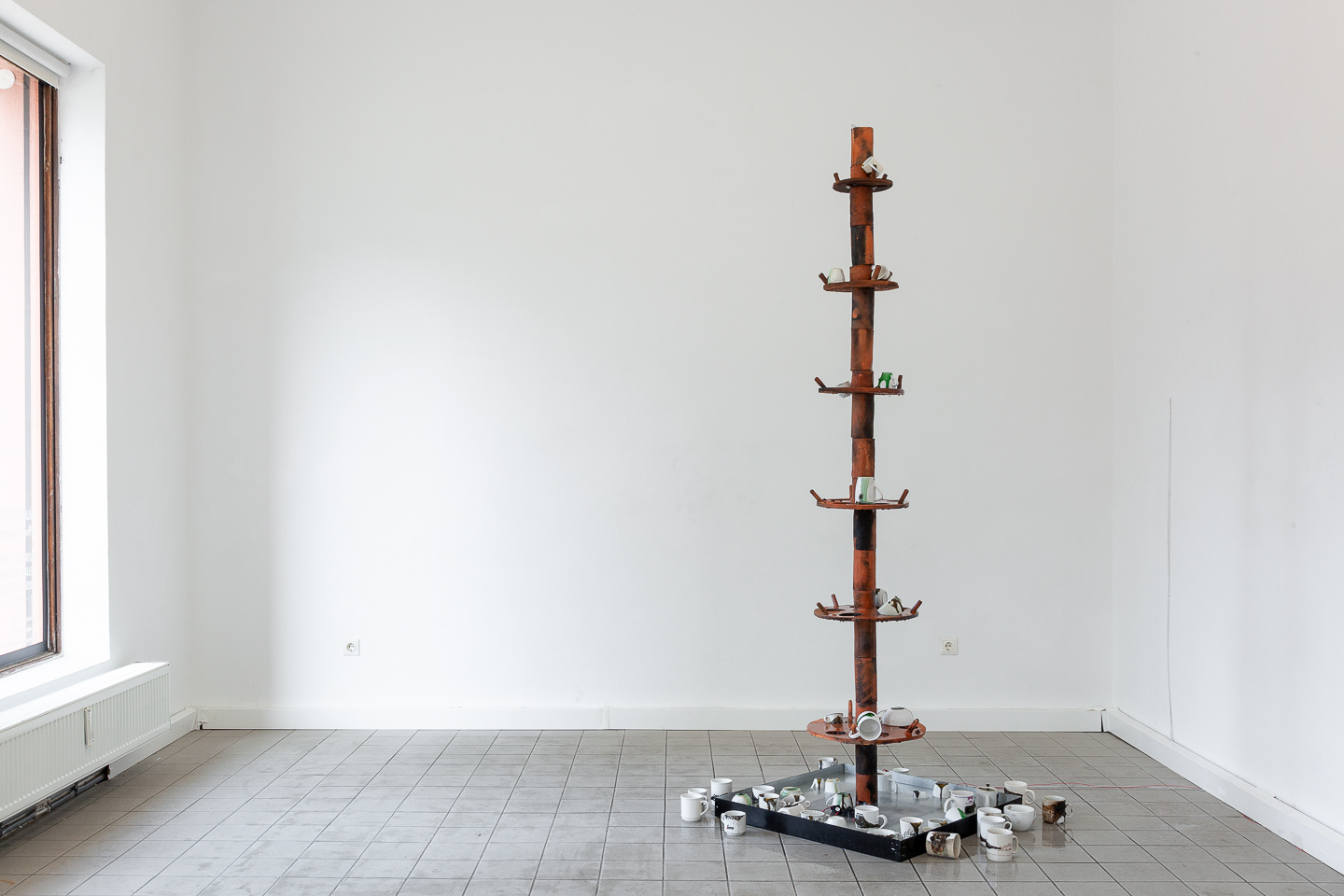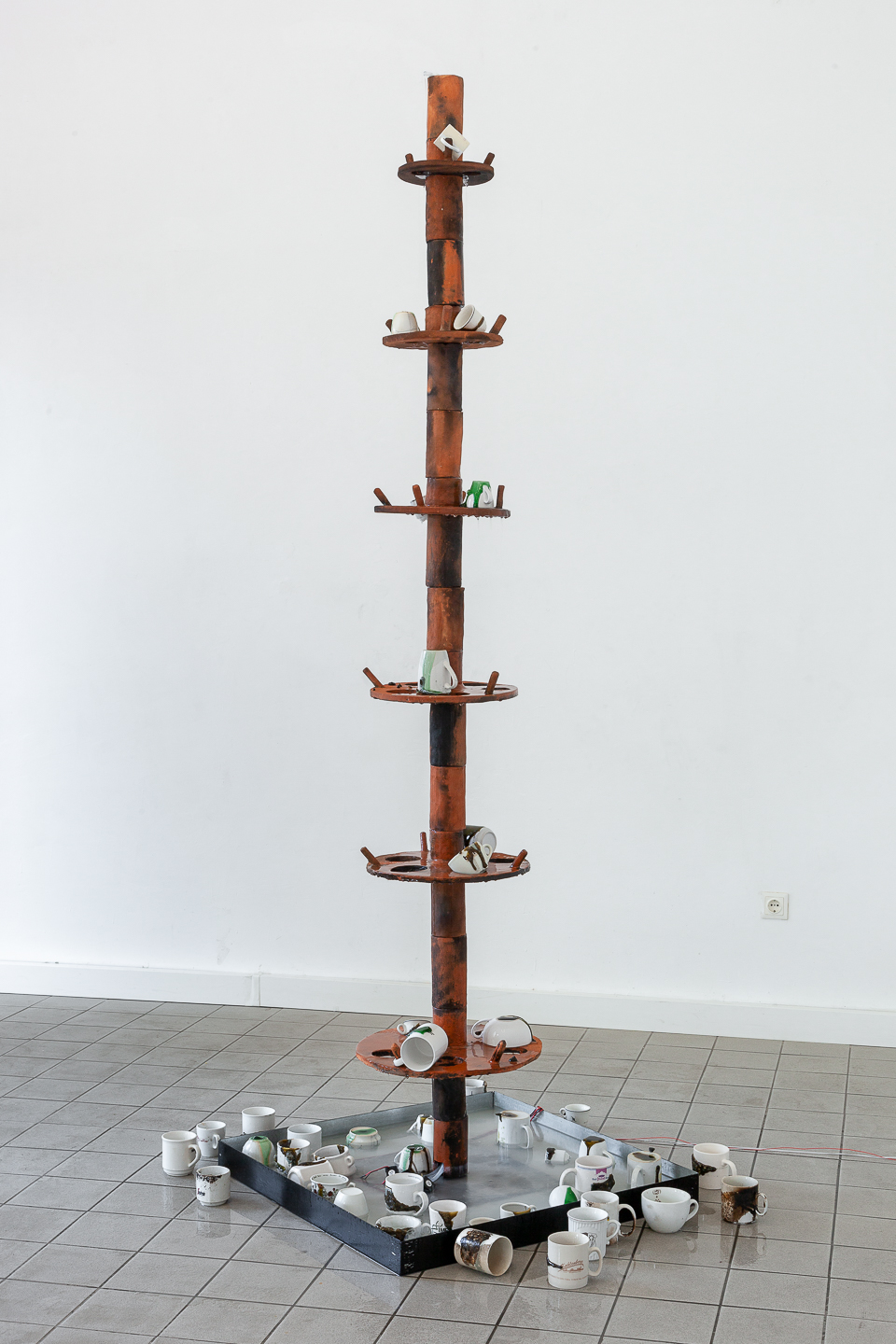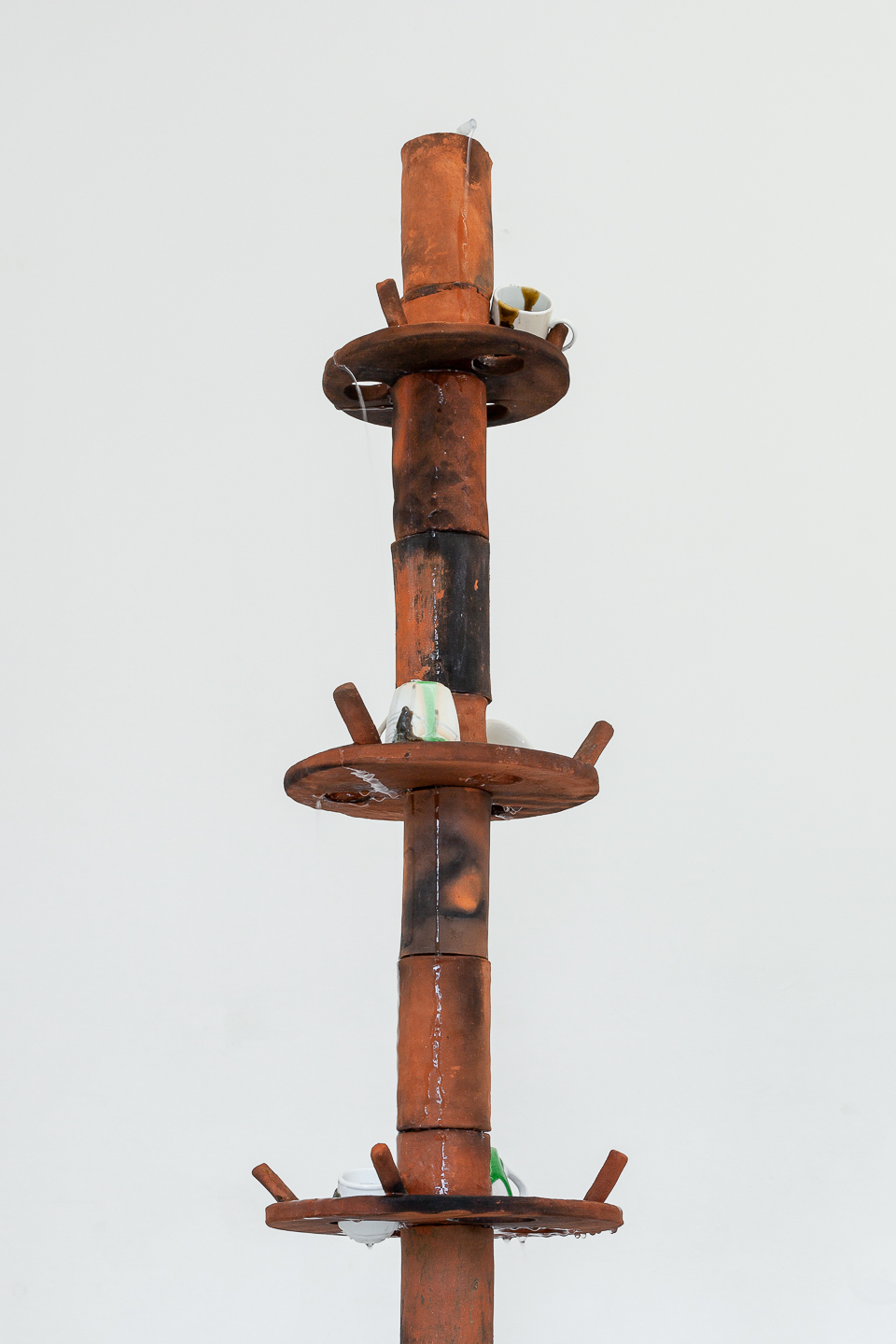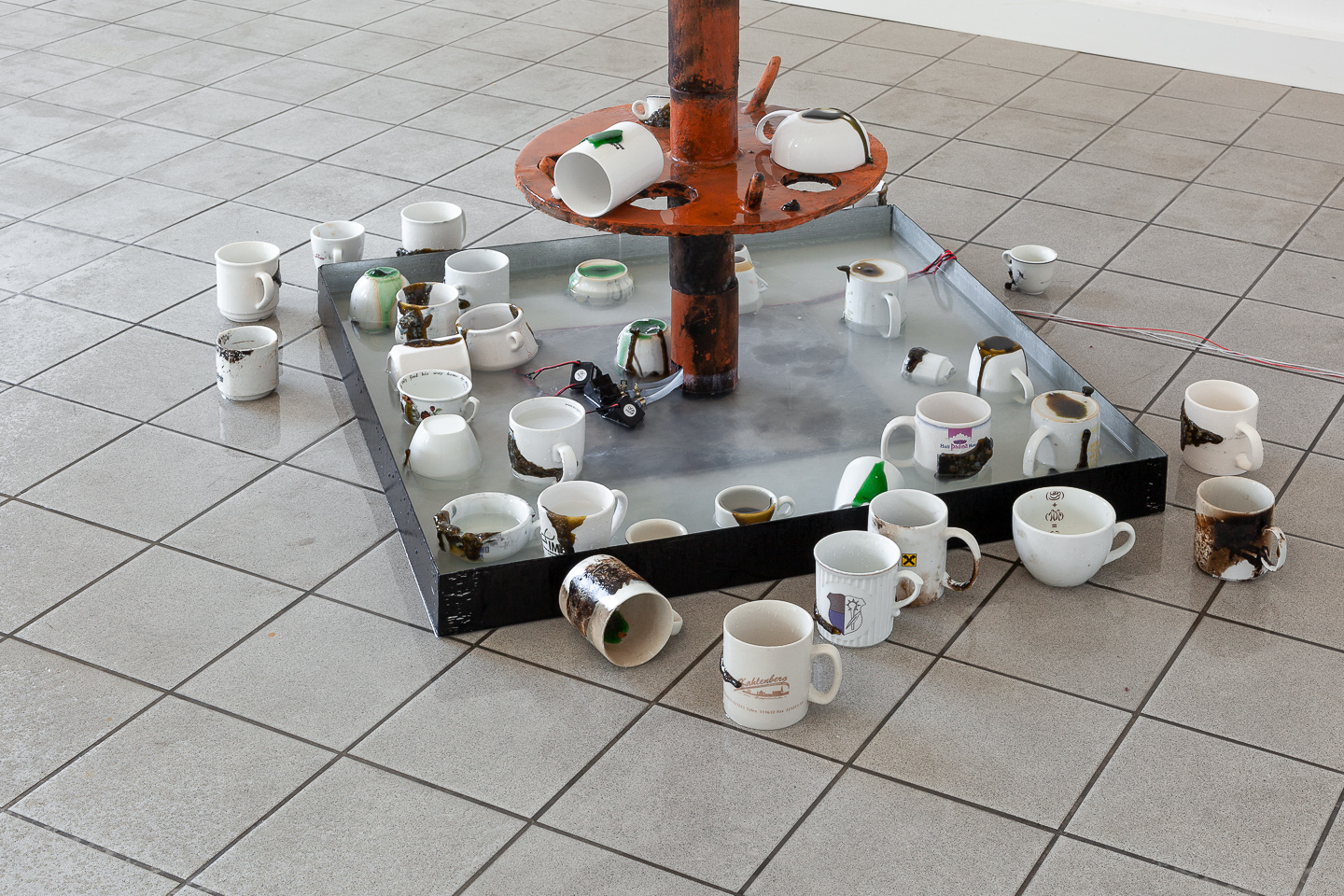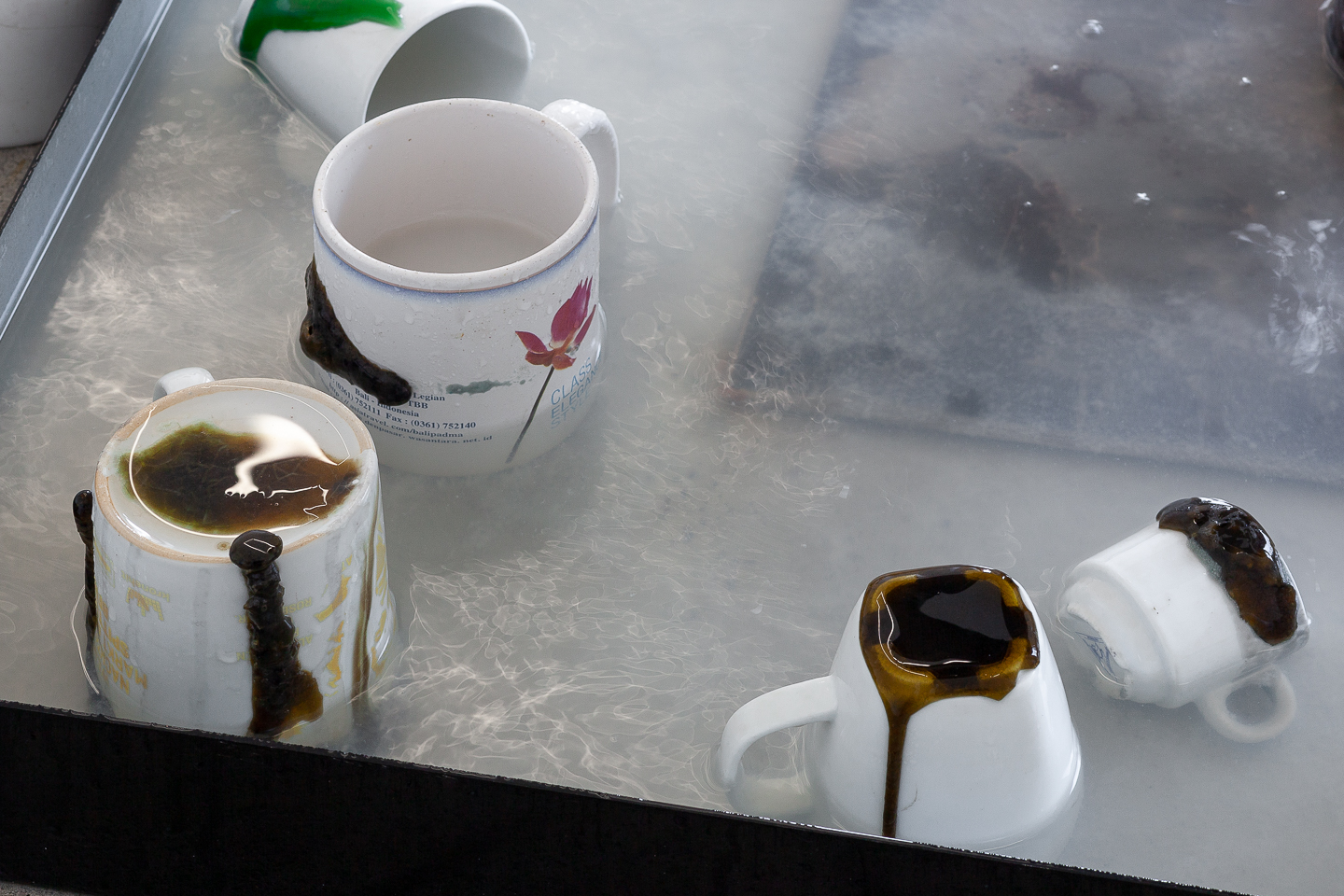Mud-Group#3: Who has land to make a fire? 2023
The exhibition Mud-Group #3: Who has land to make a fire? by Patrícia J. Reis, Céline Struger and Kristin Weissenberger revolves around the group's collaborative and artistic process, using ceramics as their primary medium for exploration. The group’s goal is to create a shared artistic process that encourages reflection and discussion among the artists involved. Through this project, the artists aim to shed light on the emancipation history of female* artists and explore the relationship between ceramics, hacking and other fields of art. The artists' question "who has a land to make a fire?" suggests a positive desire to embrace traditional, low-tech methods of generating warmth, light, and fostering community through the use of fire. This inquiry also indicates a longing to break away from the often-detached and impersonal experience of contemporary, urban lifestyles, and to establish more direct, embodied connections with nature and others. By raising this question, the artists are demonstrating their radical intent to challenge conventional understandings of ownership, property, and resource access, while also exploring sustainable communal living and alternative models of resource use. The Mud-Group's artistic journey began with a series of initial meetings where the members explored their shared interests in ceramics, particularly its cultural and feminist background. The group recognized the importance of using traditional techniques and materials as a way to resist capitalist production methods and to highlight the importance of sustainable and ethical hardware. As the group developed their artistic practice, they began to experiment with ancient ceramic production techniques in a workshop located in the forest. The artists were able to learn more about and incorporate sustainable methods for producing ceramics, which furthered their commitment to anti-capitalist practices. However, the Mud-Group's radical attitude did not stop there. They continued their exploration of autonomy by hacking the city infrastructure and reclaiming a public space on the Donau Island in Vienna. Donau Island's public barbecue spots in Vienna, established in the 1970s due to social-democratic reforms, are still in use today and attract visitors from all walks of life, including immigrants. While some upper middle class and privileged citizens view the spots as unsanitary and a nuisance, they serve as a vital social and cultural space for many immigrants, allowing them to maintain their cultural traditions and foster community building. These negative attitudes towards the public barbecue spots are indicative of a larger issue of class and cultural divisions in Austrian society. The upper middle class and privileged citizens may not understand the importance of the barbecue spots to immigrants, as they may not have experienced the same struggles and challenges as immigrant communities. During this exercise, the group members questioned the idea of public space and ownership, and used their art to push boundaries and reclaim space for public use. Hacking of urban infrastructure for autonomous living refers to the practice of using and repurposing existing urban infrastructure for self-sufficient and sustainable living. This practice has gained popularity in recent years as people seek alternative solutions to live off the grid and reduce their reliance on traditional forms of infrastructure, such as power grids and water supply systems. Ethical hardware and DIY approaches play a crucial role in this process, as they enable individuals to build and maintain their own sustainable systems. By hacking and repurposing existing infrastructure, individuals can create their own networks of sustainable resources, allowing for greater autonomy and resilience. This practice not only promotes self-sufficiency but also contributes to a more sustainable and ethical use of urban resources. Artistic hacking is also becoming increasingly popular as a means of creating sustainable living solutions. By incorporating creative and artistic elements into the design and implementation of autonomous living systems, individuals and communities can create more engaging and aesthetically pleasing solutions that are also functional. This installation showcases two unique pieces. Firstly, a water fountain made entirely out of ceramic pieces that were fired at Donau Island, with ceramic plates holding cups collected from common spaces such as offices and artist ateliers. The cups, which serve as carriers of advertisements, have been intentionally covered with broken glass and melted onto the cups through the same firing process as the ceramic pieces. The second piece features a customized metal structure specifically built for barbecue place number 12, along with a hacked barbecue rod typically used for cooking chicken. This piece reenacts the firing process and adds to the overall experience of the installation. Céline Struger and Kristin Weissenberger have joined forces with the PEEK Feminist Hacking: Building Circuits as an Artistic Practice research project, which seeks to establish feminist hacking as a strategy for emancipation in the art, science, and technology fields (Stefanie Wuschitz, Taguhi Torosyan, and Patrícia J. Reis). The exhibition aims to showcase how the project's approach to new materialism promotes emancipation through the agency of materials. Mud-Group III: Who has land to make a fire? showcases a collaborative and thought-provoking approach to ceramics and its relationship with other fields of art.
Water Fountain made of natural clay collected in Austria and fired in the public barbecue of the Donau Island in Vienna and industrial cups with diverse advertisement covered with melted waste glass. Rounded barbecue metal structure with electrical rod customised and natural clay. Video with documentation of action at the Donau Island in Vienna, Color Full-Hd, Mute, 43 min.
- Categories:
- Share Project :
